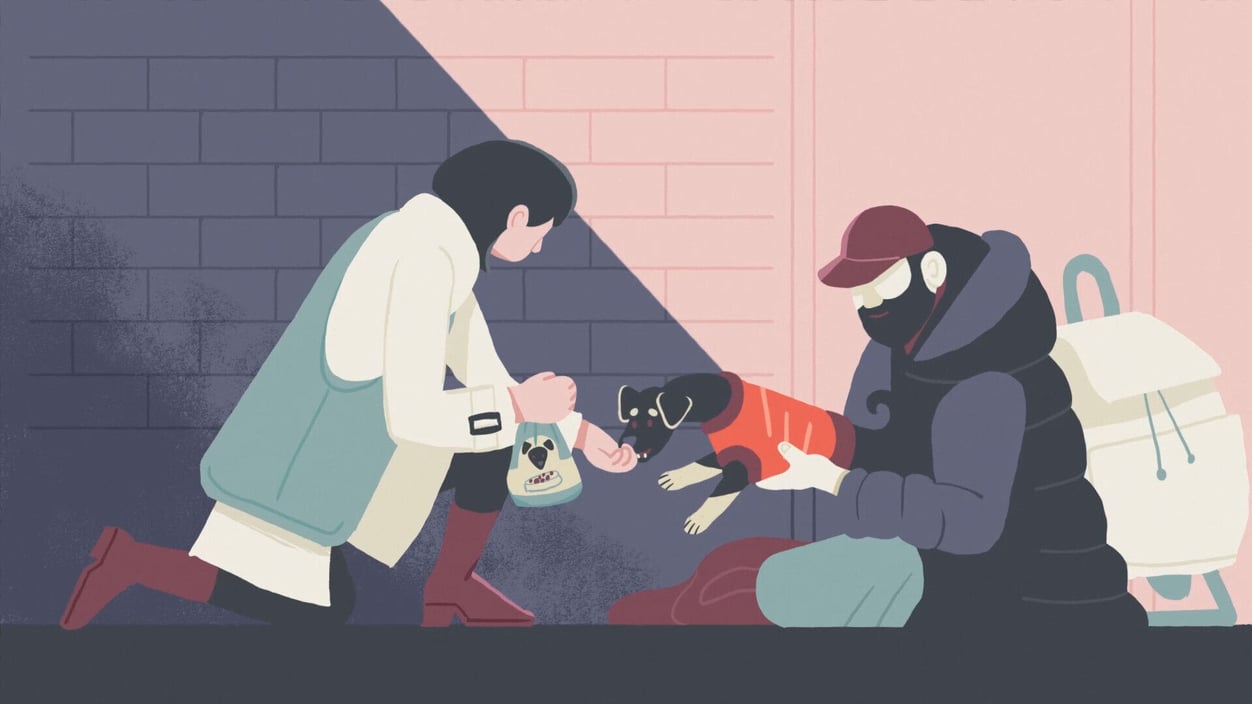video
How one street psychiatrist earns her patients' trust

Animation by Anne Saint-Louis for STAT
On any given night in 2024, more than 771,400 people in the U.S. experienced homelessness, according to federal data. Among them, there's a high rate of mental illness, including substance use disorder. Street psychiatry is a way to meet people where they're at to provide both health care and personal connection.
Psychiatrist Liz Frye has one key strategy to gaining people's trust: make very few promises, but come through on all of them. "I don't have a magic wand," Frye told STAT's Isabella Cueto and former STAT producer Hyacinth Empinado. "But I can sit with people and be there with them in authentic solidarity, where I'm sharing in their pain and suffering."
Watch the excellent — and beautifully animated — video to learn more. This is the second in Hyacinth's series of videos on caregivers. If you missed it, check out the first installment, on death doulas.
one small number
1 in 10
That's how many non-surgical, non-invasive treatment methods actually work when it comes to lower back pain — and even those that work only have a small effect. That's according to a systematic review of 301 randomized controlled trials testing treatments for acute and chronic lower back pain, published yesterday in BMJ Evidence Based Medicine.
Out of 56 different treatments tested in total, just one for acute pain (NSAIDs, like aspirin and ibuprofen) and five for chronic pain (exercise, spinal manipulation, taping, antidepressants, and muscle relaxants) provided those small benefits, and only with moderate certainty, according to the research. What's the phrase? More research is needed.
(There are some great stories in the STAT archives on pain — for example, read how physician empathy could help with lower back pain, or about how one company inundated pain patients with bills in an oversupplying scheme. See all our pain coverage here.)
infectious disease
A reflection from a former 'vaccine nihilist'
Yesterday, we brought you a First Opinion essay by a "reformed hypochondriac." Today, may I present to you: former "vaccine nihilist" and physician Jonathan Temte. That's how Temte describes his perspective at the start of his medical career in the early '90s. "The immunization seminar during my residency was dry and uninspiring," he writes. "I neglected to have my first child vaccinated against chickenpox; the scars are still present."
But his attitude began to change, exactly 25 years ago this week, when he attended the 2000 CDC Measles Elimination Meeting in Atlanta. In his First Opinion essay, Temte looks back at the progress that was made on the deadly infectious disease over the past two dozen years — and the sadness and disbelief he feels reading about the disease's re-emergence in Texas and New Mexico. Read more.
Relatedly: The expanding measles outbreak that has spread from West Texas into New Mexico and Oklahoma could take a year to contain, a public health leader in the area where the outbreak started warned on Tuesday. STAT's Helen Branswell has the story.


No comments